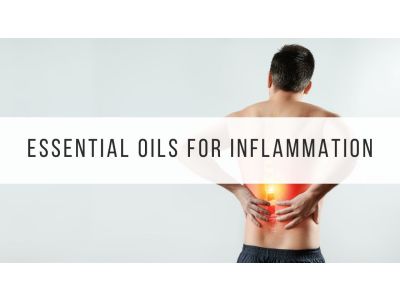What is Inflammation?
Inflammation is a necessary and important part of our immune system. It’s part of our body’s defence mechanism, and occurs when the immune system sends out inflammatory cells to heal an injury or fight bacteria; for example, if you sprain your ankle or have an infection. The inflammatory response traps germs and toxins and starts healing injured tissue.
While inflammation is a vital – and sometime life-saving – bodily function, it’s not necessarily always a good thing. Problems can occur when the body might not be clear on what it needs to fight off, and it continues sending inflammatory cells even when there is no danger. This can lead to chronic inflammation, which has been linked to a wide range of conditions, including rheumatoid arthritis, psoriasis, Chrohn’s disease, heart disease, high blood pressure, asthma, and even some mental health conditions like depression and anxiety, and neurodegenerative diseases like Alzheimer’s and Parkinson’s.
Symptoms & Causes of Inflammation
The symptoms of acute inflammation include: flushed skin at the site of the injury; pain or tenderness; swelling; skin that feels hot to the touch; and an inability to use that part of the body as you normally would (for example, reduced range of motion).
The symptoms of chronic inflammation, however, can be harder to spot and may include: abdominal pain; chest pain; fatigue; joint pain or stiffness; mouth sores; skin rashes; gastrointestinal issues; weight changes; and frequent infections.
Acute inflammation is typically caused by injuries or infection. Whereas most cases of chronic inflammation are caused by environmental factors, including aspects of our daily life and exposures to toxins. Common causes of chronic inflammation include chronic stress, low levels of physical activity, obesity, smoking and excessive alcohol consumption, disrupted sleep, frequently eating foods that cause inflammation (such as foods high in trans fat or salt), not having a healthy gut microbiome, and exposure to environmental toxins (such as air pollution and industrial chemicals).
Traditional Remedies
Due to the complexities of chronic inflammation, treatment by qualified health professionals is often required. However, it’s generally considered that maintaining a good level of exercise, eating a healthy and balanced diet, reducing alcohol consumption and avoiding smoking are all ways to help reduce the risk of chronic inflammation. Some people also use anti-inflammatory diets to help manage the symptoms of certain inflammatory conditions.
For those seeking an alternative and holistic approach, some people turn to traditional therapies to help manage inflammation. Examples of this include massage, reflexology, acupuncture, herbal medicine, and aromatherapy.
There’s a wealth of information online about foods and supplements that may help with chronic inflammation, as well as how regular exercise is beneficial. But here, we’re going to explore some of the most popular essential oils that are traditionally used to help with inflammation, which some people use for both chronic and acute inflammation.
Anti-Inflammatory Essential Oils
So, how can essential oils help when it comes to inflammation? Many essential oils contain antioxidants, and it’s believed that antioxidants can help reduce some of the unpleasant effects of inflammation in the body. While research is still ongoing, there’s emerging evidence that suggests many essential oils do contain anti-inflammatory properties. Let’s take a look at which oils may help…
Thyme – Thyme is considered to be one of the most effective anti-inflammatory essential oils. Studies have shown that it could reduce the COX-2 enzyme (an inflammatory marker) by up to 75%. Thyme contains carvacrol, which is believed to provide certain cardioprotective qualities, so it may be beneficial for people living with a variety of heart diseases. It also contains the component thymol, which is believed to be effective at reducing infection and inflammation, particularly in oral health.
Eucalyptus – When applied topically, Eucalyptus oils is believed to provide relief for joint pain, swelling and inflammation. There is also research that suggests that inhaling Eucalyptus oil may help manage pain and assist in lowering blood pressure.
Clove – Ever been told to chew a clove for toothache? Clove contains the component eugenol, which is understood to help reduce swelling and inflammation in an affected area. Eugenol is a common ingredient found in toothpastes, mouthwashes and some oral medication, and researchers found that toothpastes containing eugenol was more effective against inflammation, infection and pain than a placebo.
Ginger – Ginger is a popular choice for natural inflammation remedies, and it’s been used for centuries. It’s believed to have the ability to reduce both inflammation and pain, with research indicating it may help with chronic joint swelling associated with rheumatoid arthritis, as well as a reduction in pain associated with exercise-induced muscle pain and menstrual cramps.
Turmeric – The main active ingredient in Turmeric is curcumin, and this has been shown to block the molecule NF-kB, which contributes to the inflammatory process. Some research indicates Turmeric oil may help to reduce joint inflammation, which in turn could reduce pain and stiffness symptoms.
Lavender – The benefits of Lavender is wide-ranging, and this includes anti-inflammatory properties. Studies have shown that Lavender oil can inhibit four inflammatory molecules in the body, and is a popular oil of choice for topical remedies for dermatitis and eczema.
Peppermint – Peppermint oil contains menthol and menthone, which some research has shown can reduce the number of white blood cells called leukocytes (which contribute to inflammation at the site of an injury or wound). The cooling effect of menthol and menthone are believed to reduce blood flow and the number of leukocytes to the area, thereby reducing the effects of inflammation.
Bergamot – Several compounds in Bergamot oil have been shown to help with inflammation and wound healing. The compounds carvacrol and linalool are thought to make Bergamot an effective oil for pain relief. These compounds have also been shown to produce anti-inflammatory, anticonvulsant and analgesic properties when applied to the skin.
Rose – Rose oil is believed to have antiseptic, antibacterial and anti-inflammatory properties, and it is a popular traditional remedy for inflammation and irritation in certain skin conditions, including eczema, rosacea, acne and skin rashes. There is also interesting research that suggests it can be effective in providing perceived pain relief when inhaled.
How to Use Essential Oils for Inflammation
There are a number of ways that essential oils can be incorporated into traditional remedies for inflammation, including:
- Use in an oil diffuser – Diffusers disperse essential oil particles into the air, allowing you to inhale their scent over a period of time. Inhaling essential oils can help to relax the body and mind, which may be beneficial if your inflammation is stress-related.
- Add oils to the skin – Where appropriate, adding essential oils to the skin may be beneficial in offering a targeted application to the inflamed area. Just remember that essential oils should always be diluted in a carrier oil before being applied to the skin, and be sure to check with a health professional before applying essential oils directly to an affected area.
- Incorporate into a massage – Whether you’re getting a massage to aid with relaxation, or you’re using sports or remedial massage to treat a specific condition or injury, massage can be a great way of easing some of the symptoms associated with inflammation. When used correctly, incorporating essential oils into the massage may enhance these effects.
- Add oils to the bath – Adding essential oils to the bath can enhance their relaxing effects, which again may be helpful if the inflammation is due to stress or sleep disruption. Just remember to only add a few drops, as essential oils can still irritate the skin in bathwater if used too liberally.
It’s important to remember that inflammation is a warning sign that there’s a problem in the body. Sometimes the problem is mild and gets better by itself, whereas other times the problem can become serious or longstanding. Caution should always be exercised when self-treating inflammation. In some instances, natural remedies could make inflammation worse (for example, if you’re allergic or sensitive to certain essential oils, foods or plants). Whether your inflammation is caused by an injury or illness, or you’re experiencing chronic or more complex inflammation, we would always recommend seeking advice from a healthcare professional before trying traditional and alternative remedies for inflammation.






